Bac Ninh seeks semiconductor investment from Singapore firms
BAC NINH – Standing Vice Chairman of Bac Ninh provincial People’s Committee (PPC) Mai Son on August 27 met with representatives of the Singapore Semiconductor Industry Association (SSIA) to explore opportunities for cooperation and investment in the fast-growing sector, as the northern manufacturing hub looks to strengthen its role in global supply chains.
The PPC Vice Chairman welcomed the delegation led by SSIA executive director Ang Wee Seng. The meeting was also attended by Vietnam’s trade counselor in Singapore, Cao Xuan Thang, along with local officials from industry and finance departments.
 |
|
The PPC Vice Chairman Mai Son presents Ang Wee Seng with a traditional Dong Ho folk painting, a cultural specialty of Bac Ninh. |
The provincial leader briefed the delegation on Bac Ninh’s economic performance in the first seven months of 2025, highlighting the province’s appeal as a destination for foreign direct investment.
He pointed to the province’s growing strengths in electronics, high technology and semiconductors, and outlined policies designed to support investors.
“With the ambition to become a centrally governed first-tier city, Bac Ninh has been investing heavily in infrastructure, while mobilizing resources for social and technical development projects,” Son said. “We are committed to ensuring a transparent, stable and long-term investment environment.”
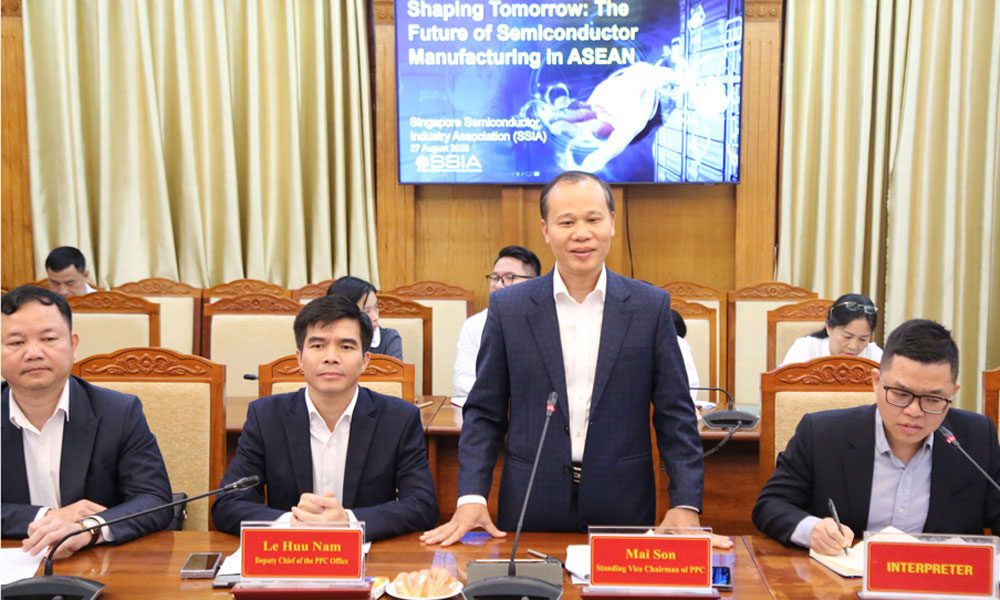 |
|
The PPC Vice Chairman Mai Son speaks at the event. |
Bac Ninh currently hosts 33 industrial parks covering more than 10,000 hectares, along with 93 smaller industrial clusters. Multinationals such as Samsung, LG, Canon and Toshiba have established major facilities there, transforming the province’s industrial landscape.
Samsung’s complex in Bac Ninh, where smartphones have been the flagship product since 2015, has been pivotal in positioning the province — and Vietnam more broadly — as a key production and assembly hub for global electronics supply chains.
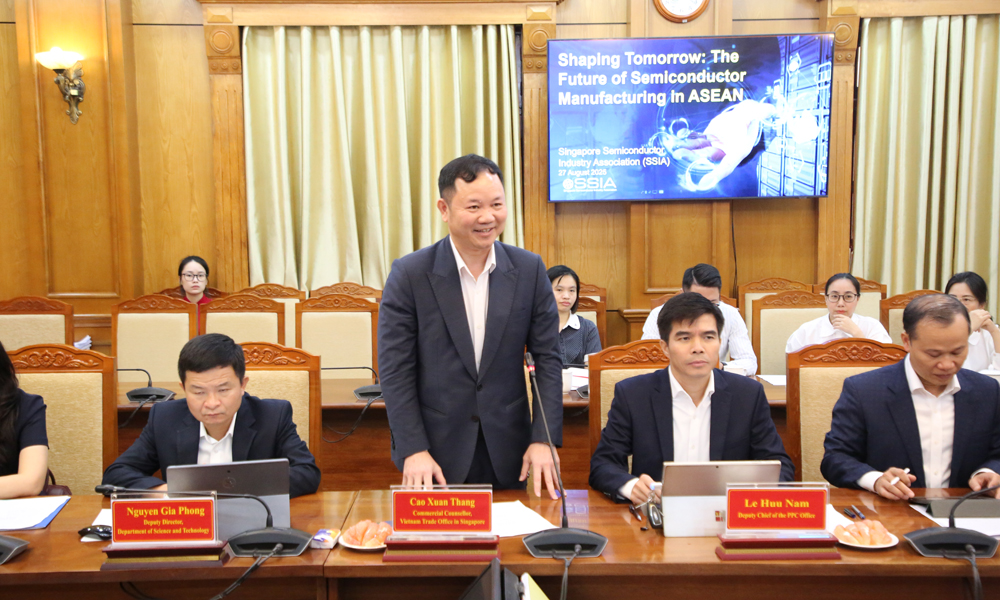 |
|
Vietnam’s trade counselor in Singapore Cao Xuan Thang expects Singaporean companies to pay greater attention to investing in Bac Ninh province. |
The PPC Vice Chairman noted that Singapore is already one of Bac Ninh’s key trading partners and urged SSIA to encourage its members to consider investing in the province. He directed local departments, including finance, industry and the industrial park management board, to serve as contact points for potential investors and to provide necessary guidance.
For his part, SSIA’s Ang Wee Seng praised the province’s openness and said Singapore’s semiconductor industry was eager to explore opportunities in Vietnam.
He introduced SSIA as a leading body representing Singapore’s microelectronics sector, with a mission to connect domestic and global semiconductor players, share expertise, and promote emerging technologies.
Singapore, one of Asia’s top semiconductor hubs, is home to major foundries and design firms, and has sought to expand its ecosystem by building stronger regional partnerships.
For Vietnam, which has ambitions to climb up the semiconductor value chain, the tie-up offers opportunities in manufacturing, design services and training.
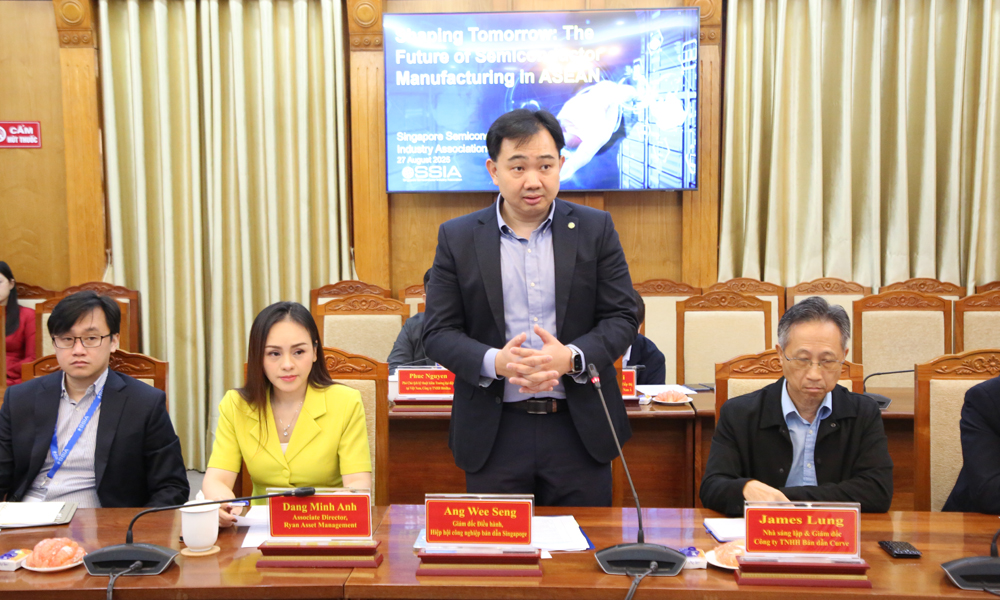 |
|
Ang Wee Seng calls on provincial leaders to create favorable conditions for semiconductor companies to invest, manufacture and do business in Bac Ninh. |
After the meeting, the Singaporean delegation toured the Vietnam-Singapore Industrial Park (VSIP) in Bac Ninh to gain first-hand insights into infrastructure and investment opportunities.
The talks come as global semiconductor supply chains continue to diversify in response to shifting trade dynamics and geopolitical tensions. Vietnam has attracted growing attention from chipmakers and supporting industries, thanks to its young workforce, competitive costs and proximity to existing electronics clusters.
Bac Ninh, situated just northeast of Hanoi, has been at the forefront of this trend, leveraging its industrial parks to host leading technology manufacturers. Officials hope that fresh investment from Singapore could bolster not only production capacity but also capabilities in areas such as chip design, testing and packaging.
 Bắc Ninh
Bắc Ninh

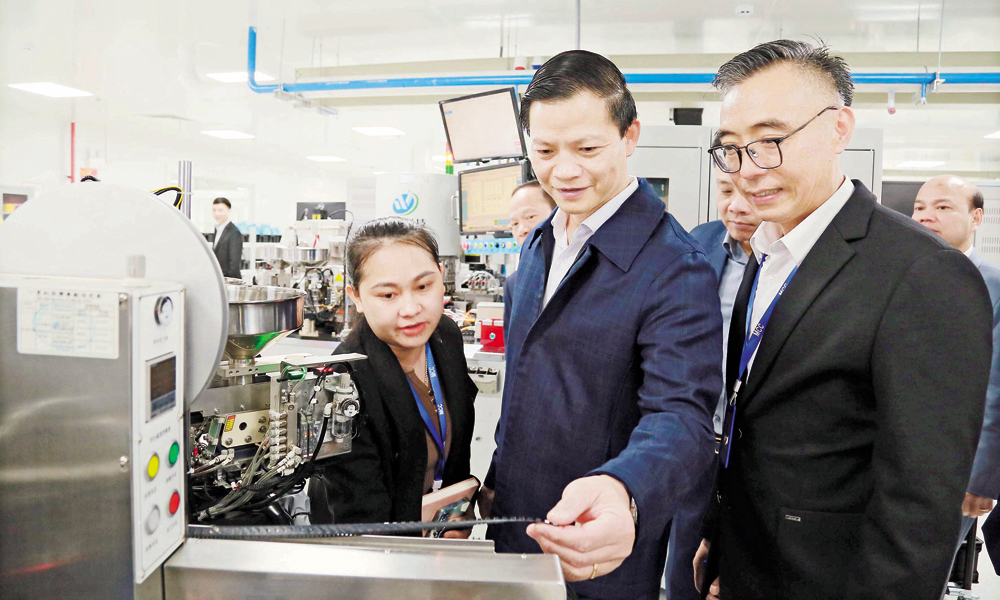



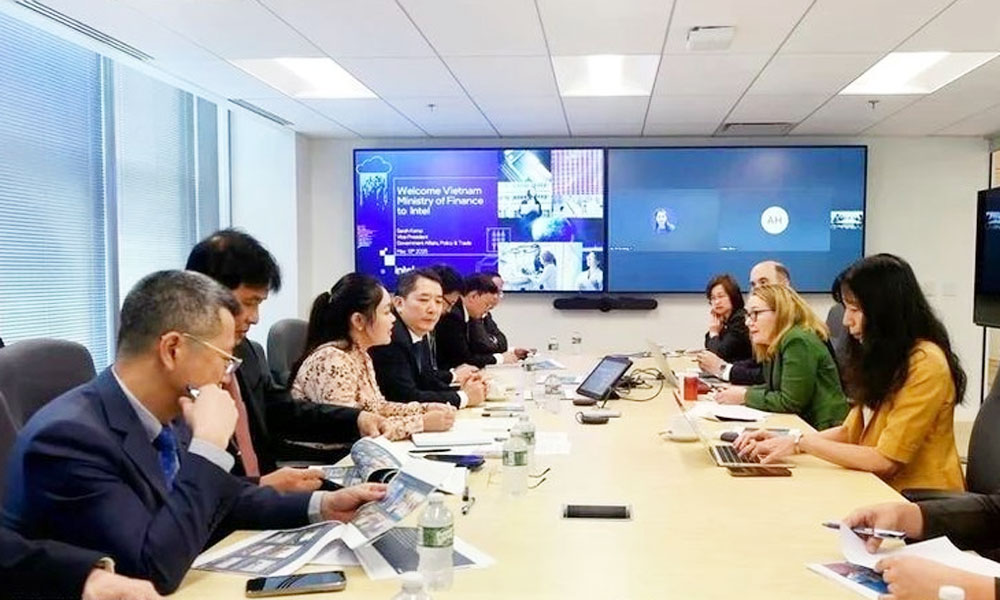





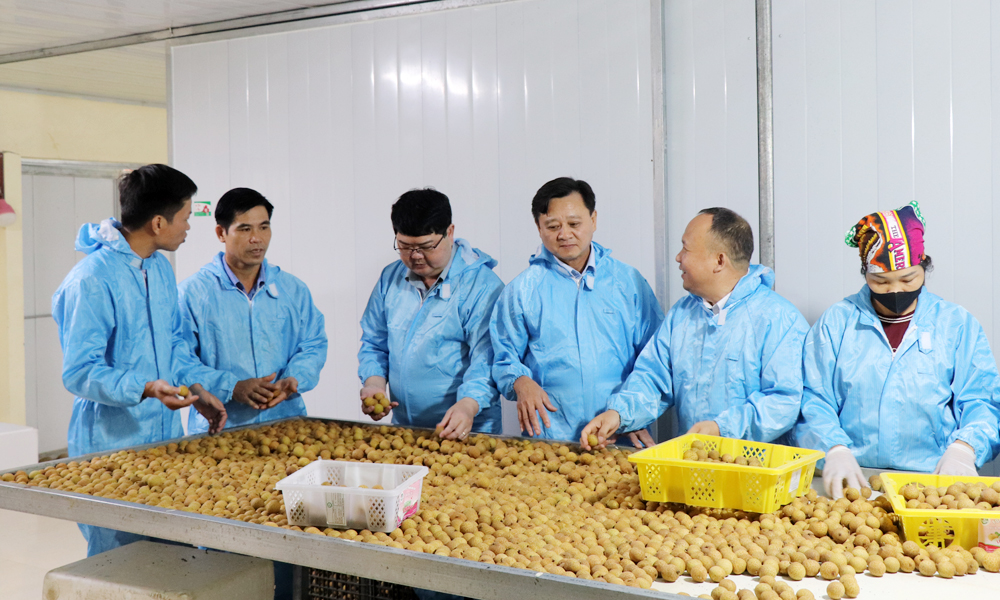

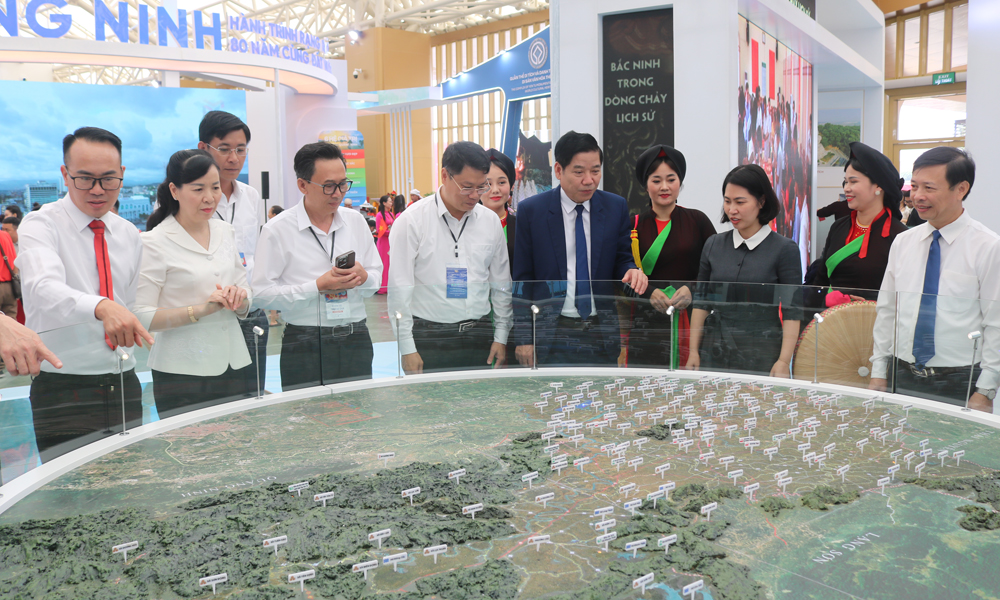

Reader's comments (0)